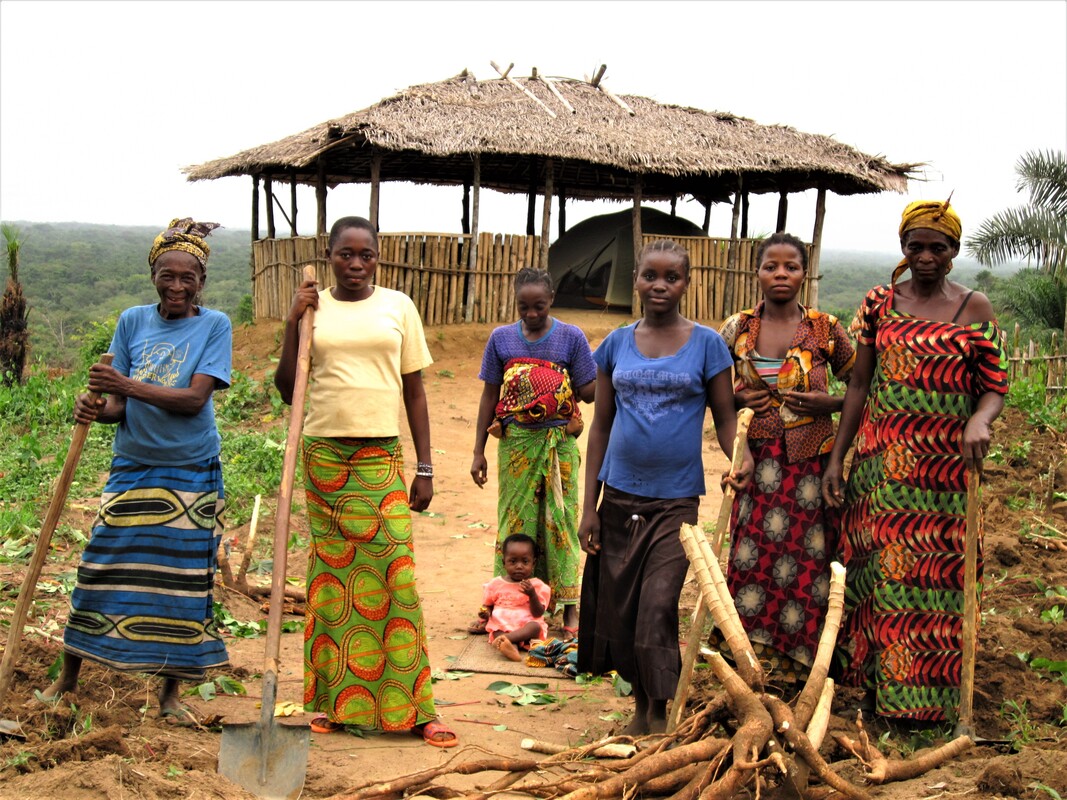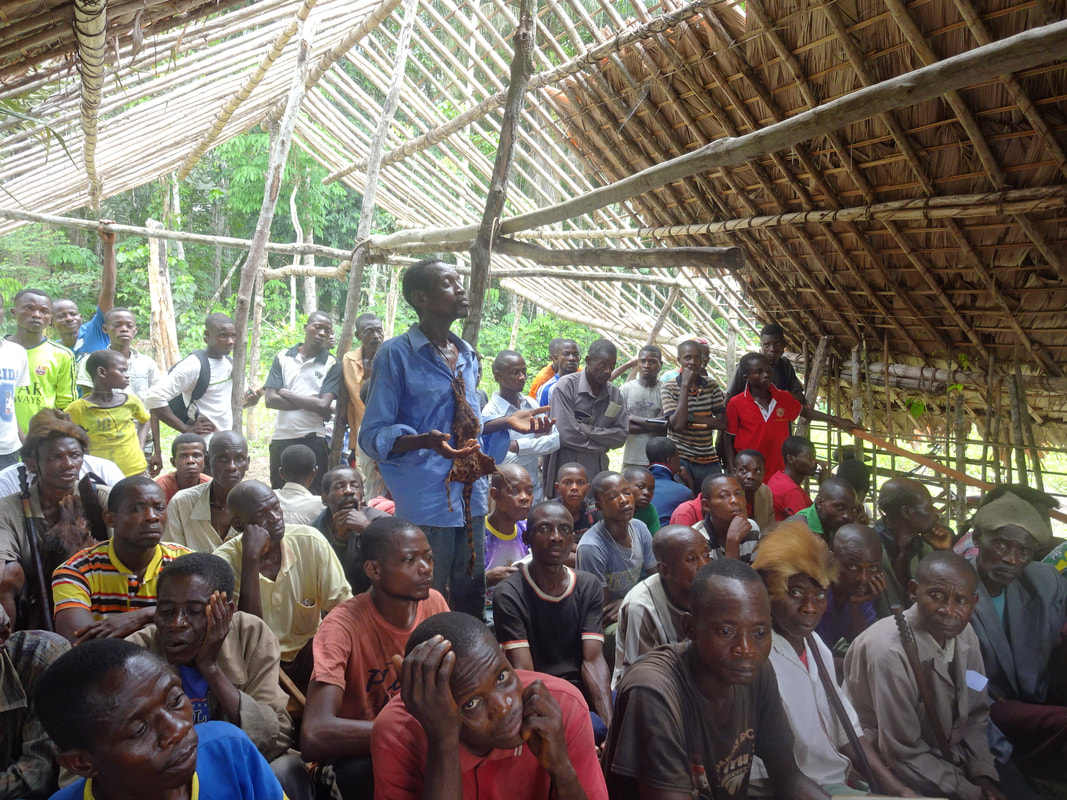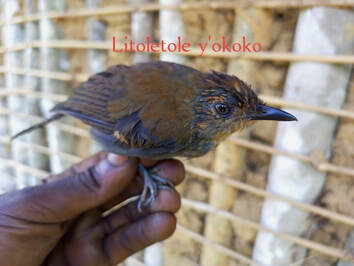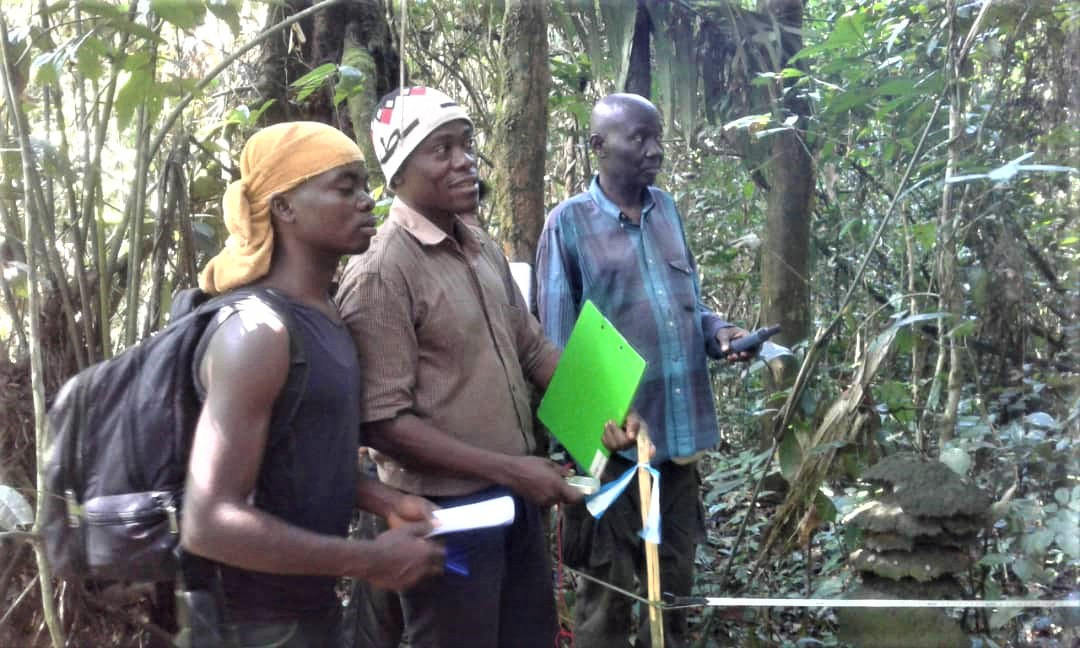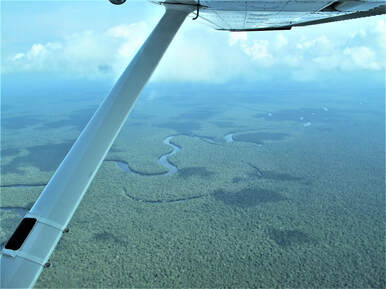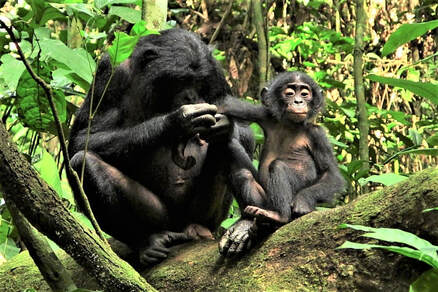TRAINING IN SUSTAINABLE AGRICULTURE IS CRUCIAL FOR LOCAL FARMERS TO IMPROVE THEIR LIVELIHOODS AND PRESERVE THE FORESTS. |
Research and Training
Applied knowledge is where true environmental change happens.
Djolu Technical College (DTC) is the only college that teaches environmental and agricultural sciences in an area the size of England. Research and community outreach and training by DTC faculty and graduates are core to the College’s mission and essential for updating outdated agricultural and environmental practices in the region to be more sustainable and climate-resilient.
Farmer outreach and training
The vast majority of people in Tshuapa Province are subsistence farmers who practice slash-and-burn agriculture. While this ancient farming technique can provide short-term benefits such as increased soil nutrients, as rural populations grow, the practice leads to increased deforestation, biodiversity decline, soil degradation, and greenhouse gas emissions.
DTC provides training to local farmers in sustainable and regenerative agriculture methods that are critical to preserving the rainforest for future generations. The College also benefits from agricultural extension services by INERA, the DRC’s national agricultural research agency.
Most farm labor in the region is done by women, so DTC has a long-standing initiative to include women farmers in community outreach and training. Agroforestry, rotation of cereals with vegetable crops, and other regenerative agriculture techniques reduce deforestation and provide better nutrition for families on smaller plots of land.
The vast majority of people in Tshuapa Province are subsistence farmers who practice slash-and-burn agriculture. While this ancient farming technique can provide short-term benefits such as increased soil nutrients, as rural populations grow, the practice leads to increased deforestation, biodiversity decline, soil degradation, and greenhouse gas emissions.
DTC provides training to local farmers in sustainable and regenerative agriculture methods that are critical to preserving the rainforest for future generations. The College also benefits from agricultural extension services by INERA, the DRC’s national agricultural research agency.
Most farm labor in the region is done by women, so DTC has a long-standing initiative to include women farmers in community outreach and training. Agroforestry, rotation of cereals with vegetable crops, and other regenerative agriculture techniques reduce deforestation and provide better nutrition for families on smaller plots of land.
Biodiversity research
The central Congo rainforest harbors a vast variety of biodiversity that has been little explored by scientists. With the exception of a few charismatic megafauna, the region's biodiversity is little known to the rest of the world.
The people who live there know their forests intimately. But funding for science education and ecological research in the DRC is very limited, and there are far too few Congolese biologists. CEP and Vie Sauvage are helping to change this by inspiring and training a new generation of rural Congolese students at Djolu Technical College. One of the goals of DTC is to train future researchers who understand local issues and concerns, and who have the trust of local communities.
The Kokolopori Nature Reserve, best known as a research and conservation site for bonobos, is managed by Vie Sauvage, which also manages Djolu Technical College. Under the leadership of Dr. Albert Lokasola, Vie Sauvage recently established a research program on herps (reptiles and amphibians) and birds in the Kokolopori reserve. The ultimate goal of the bird project is to develop a field guide to birds of the central Congolian rainforest.
The central Congo rainforest harbors a vast variety of biodiversity that has been little explored by scientists. With the exception of a few charismatic megafauna, the region's biodiversity is little known to the rest of the world.
The people who live there know their forests intimately. But funding for science education and ecological research in the DRC is very limited, and there are far too few Congolese biologists. CEP and Vie Sauvage are helping to change this by inspiring and training a new generation of rural Congolese students at Djolu Technical College. One of the goals of DTC is to train future researchers who understand local issues and concerns, and who have the trust of local communities.
The Kokolopori Nature Reserve, best known as a research and conservation site for bonobos, is managed by Vie Sauvage, which also manages Djolu Technical College. Under the leadership of Dr. Albert Lokasola, Vie Sauvage recently established a research program on herps (reptiles and amphibians) and birds in the Kokolopori reserve. The ultimate goal of the bird project is to develop a field guide to birds of the central Congolian rainforest.

